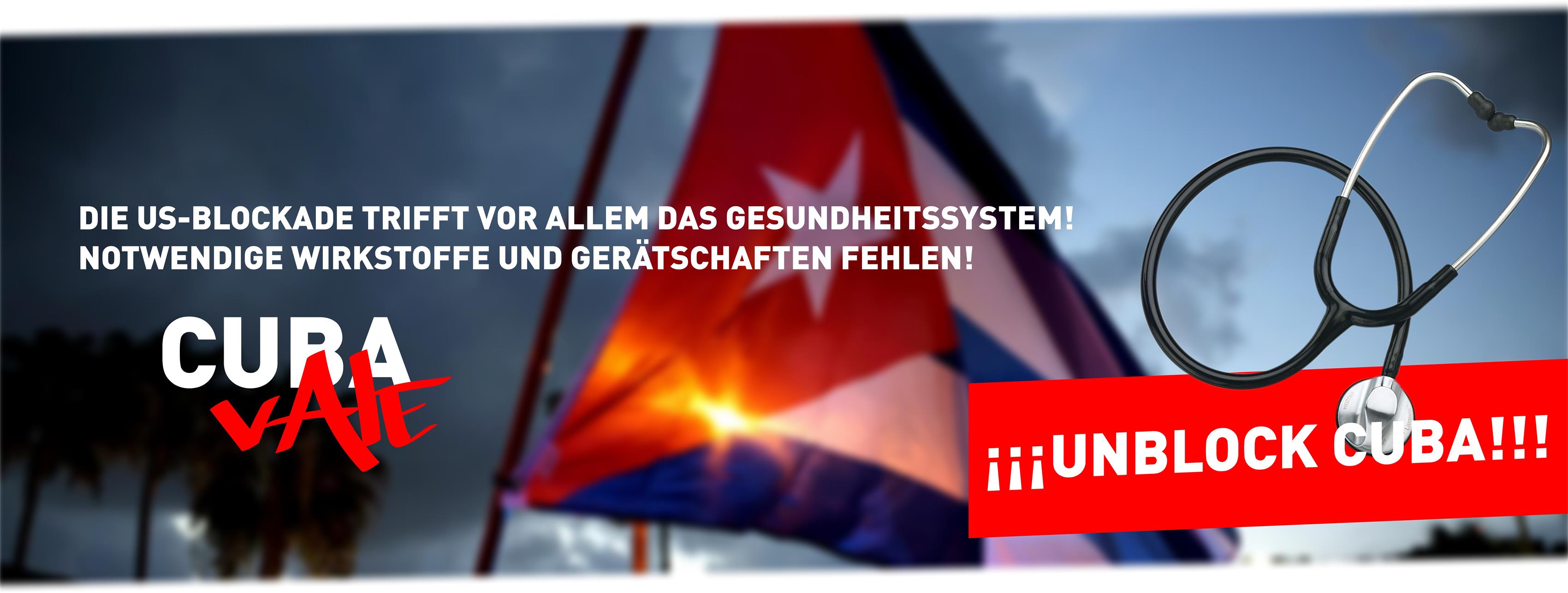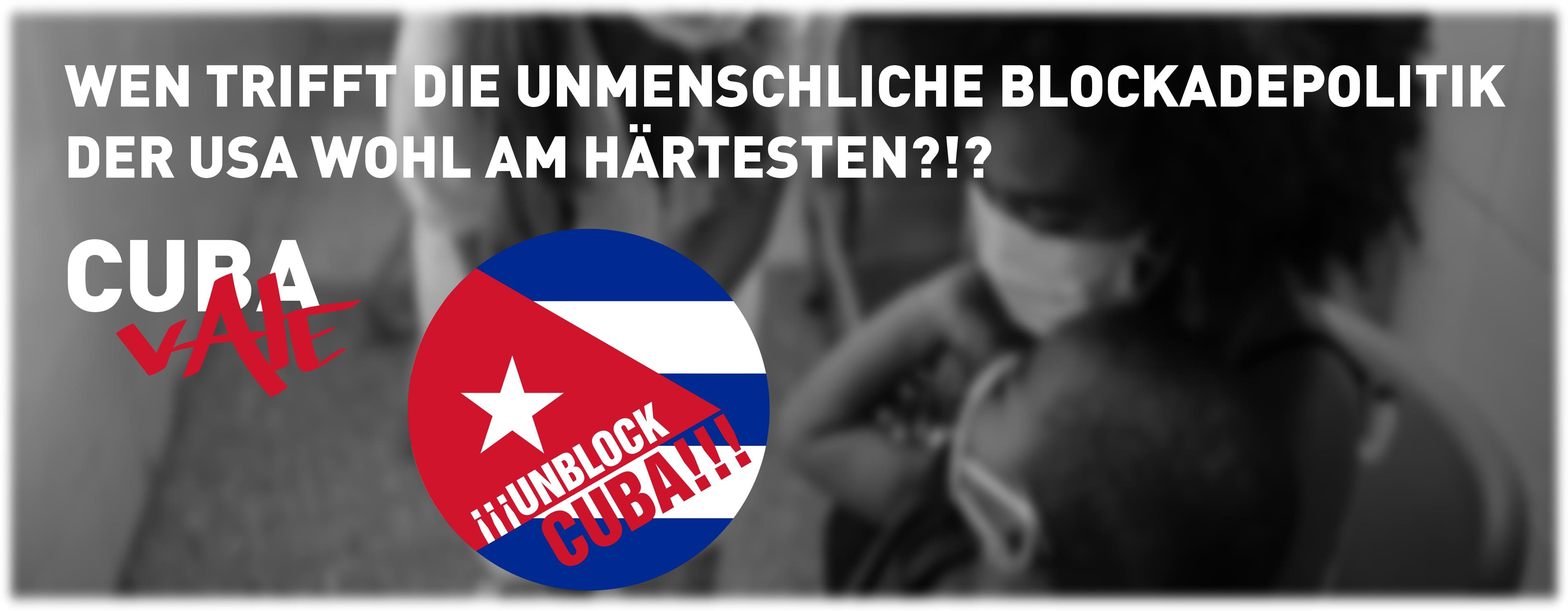
Ja, aber werden die Blockademaßnahmen nicht nur aus ideologischen Gründen angeprangert?
Nein. Der Cuban Liberty and Democratic Solidarity Act of 1996 (auch Helms-Burton Act) verschärft die seit 1960 bestehende Wirtschaftsembargo-Politik der USA gegen Kuba, die schon im Torricelli Act 1992 eine erste Ausweitung erfuhr, erneut. Einige der wesentlichsten Elemente des Helms-Burton Act wurden dabei übrigens erst 2019 durch die Trump-Regierung in Kraft gesetzt. Die darauf erfolgten internationalen Reaktionen zeigen ganz deutlich, dass der Helms-Burton Act nicht etwa aus irgendwelchen ideologischen Gründen als ungerecht und menschenverachtend angesehen werden. So verurteilten der Europarat, Argentinien, Mexiko, Kanada und eine Vielzahl anderer Staaten die Blockadepolitik der USA - ebenso wie zahlreiche Menschenrechtsorganisationen. Durch die beiden USA-Anreiner-Staaten Kanada und Mexiko wurden in der Folge sogar eigene Gesetze erlassen und die Europäische Union erließ im November 1996 die Verordnung 2271/96. Durch diese Verordnung wurde es in der EU ansässigen natürlichen wie juristischen Personen verboten den Regelungen aus dem Helms-Burton Act oder daraus entstehenden Entscheidungen Folge zu leisten. Eine für die EU höchst ungewohnt klare Positionierung.
Die aktuell bestehende Situation haben u.a. verschiedene Persönlichkeiten und Institutionen Argentiniens in ihrer Verurteilung der gegen Kuba verhängten Wirtschafts-, Handels- und Finanzblockade, sehr treffend ausgeführt, die nachfolgend in deutscher Übersetzung und spanischem Originaltext angeführt ist.
„Diese Politik verurteilt das Schwestervolk in Kuba, Leid und Not zu erfahren, während sie die Einfuhr lebenswichtiger Nahrungsmittel und Medikamente verhindert und trotz der alljährlich von der Generalversammlung der Vereinten Nationen fast einstimmig formulierten Verurteilung völkerrechtswidrig angewandt wird. Da nur die Vereinigten Staaten und Israel dagegen stimmen. Die kubanische Revolution ermöglichte den Zugang zu Grundrechten, insbesondere zu Gesundheit und Bildung, für Millionen von Menschen, die von Armut und Elend bewahrt wurden, was es ermöglicht hat, ein außergewöhnliches Entwicklungsniveau in der Wissenschaft zu erreichen, wie die fünf Impfstoffe zeigen, die sie gegen Covid-19 entwickelt hat. Darüber hinaus war Kuba ein Beispiel der Solidarität mit allen Völkern der Welt und aus diesem Grund das ständige Ziel der Schikanen des Imperiums, das immer die Zerstörung seiner Souveränität und Unabhängigkeit im Visier hatte.“
Übersetzungsgrundlage “NO MÁS BLOQUEO” DICEN MILES DE ARGENTINOS Y LO REFRENDAN CON SU FIRMA, 4. Aug. 2021: „Esta política condena al pueblo hermano de Cuba a vivir padecimientos y penurias, en tanto impide el ingreso de alimentos y medicinas indispensables y se aplica violando el derecho internacional, pese a la condena que anualmente formula la Asamblea General de las Naciones Unidas, por casi unanimidad, ya que solo votan en contra Estados Unidos e Israel. La Revolución cubana implicó el acceso a derechos fundamentales, en especial a la salud y la educación, de millones de personas excluidas por la pobreza y la miseria, lo que ha permitido alcanzar un nivel de desarrollo excepcional en la ciencia como lo demuestran las 5 vacunas que ha desarrollado contra la Covid-19. Además Cuba ha sido un ejemplo de solidaridad con todos los pueblos del mundo y por eso fue objeto permanente del acoso del imperio, que tuvo siempre en la mira la destrucción de su soberanía e independencia.“
“En las relaciones internacionales practicamos nuestra solidaridad con hechos, no con bellas palabras”
Fidel Castro Ruz
Die UN-Generalversammlung hat Anfang November zum 30. Mal eine Resolution verabschiedet, in der ein Ende der US-Blockade gegen Kuba gefordert wird, nachdem die von Kuba eingebrachte Initiative vorgestellt und diskutiert wurde. Der Aufruf, der tatsächlich seit drei Jahrzehnten jährlich ergeht, fand erneut eine überwältigende Mehrheit: 185 Länder stimmten dafür, nur zwei dagegen – die Vereinigten Staaten und Israel – und zwei enthielten sich, Brasilien und die Ukraine.

Die Resolution im Originalwortlaut:
United Nations A/75/L.97 - General Assembly Distr.: Limited - 9 June 2021 (English/ Original: Spanish)
Seventy-fifth session - Agenda item 42
Necessity of ending the economic, commercial and financial embargo imposed by the United States of America against Cuba
Cuba: draft resolution
Necessity of ending the economic, commercial and financial embargo imposed by the United States of America against Cuba
The General Assembly,
Determined to encourage strict compliance with the purposes and principles enshrined in the Charter of the United Nations, Reaffirming, among other principles, the sovereign equality of States, non-intervention and non-interference in their internal affairs and freedom of international trade and navigation, which are also enshrined in many international legal instruments,
Recalling the statements of the Heads of State or Government of Latin America and the Caribbean at the Summits of the Community of Latin American and Caribbean States regarding the need to put an end to the economic, commercial and financial embargo imposed against Cuba,
Concerned about the continued promulgation and application by Member States of laws and regulations, such as that promulgated on 12 March 1996 known as “the Helms-Burton Act”, the extraterritorial effects of which affect the sovereignty of other States, the legitimate interests of entities or persons under their jurisdiction and the freedom of trade and navigation,
Taking note of declarations and resolutions of different intergovernmental forums, bodies and Governments that express the rejection by the international community and public opinion of the promulgation and application of measures of
the kind referred to above,
Recalling its resolutions 47/19 of 24 November 1992, 48/16 of 3 November 1993, 49/9 of 26 October 1994, 50/10 of 2 November 1995, 51/17 of 12 November 1996, 52/10 of 5 November 1997, 53/4 of 14 October 1998, 54/21 of 9 November 1999, 55/20 of 9 November 2000, 56/9 of 27 November 2001, 57/11 of 12 November 2002, 58/7 of 4 November 2003, 59/11 of 28 October 2004, 60/12 of 8 November 2005, 61/11 of 8 November 2006, 62/3 of 30 October 2007, 63/7 of 29 October 2008, 64/6 of A/75/L.97 2/2 21-07640 28 October 2009, 65/6 of 26 October 2010, 66/6 of 25 October 2011, 67/4 of 13 November 2012, 68/8 of 29 October 2013, 69/5 of 28 October 2014, 70/5 of 27 October 2015, 71/5 of 26 October 2016, 72/4 of 1 November 2017, 73/8 of 1 November 2018 and 74/7 of 7 November 2019,
Recalling also the measures adopted by the Executive of the United States of America in 2015 and 2016 to modify several aspects of the application of the embargo, which contrast with the measures applied since 2017 to reinforce its implementation,
Concerned that, since the adoption of its resolutions 47/19, 48/16, 49/9, 50/10, 51/17, 52/10, 53/4, 54/21, 55/20, 56/9, 57/11, 58/7, 59/11, 60/12, 61/11, 62/3, 63/7, 64/6, 65/6, 66/6, 67/4, 68/8, 69/5, 70/5, 71/5, 72/4, 73/8 and 74/7, the economic, commercial and financial embargo against Cuba is still in place, and concerned also about the adverse effects of such measures on the Cuban people and on Cuban nationals living in other countries,
1. Takes note of the report of the Secretary-General on the implementation of resolution 74/7;
2. Reiterates its call upon all States to refrain from promulgating and applying laws and measures of the kind referred to in the preamble to the present resolution, in conformity with their obligations under the Charter of the United Nations and international law, which, inter alia, reaffirm the freedom of trade and navigation;
3. Once again urges States that have and continue to apply such laws and measures to take the steps necessary to repeal or invalidate them as soon as possible in accordance with their legal regime;
4. Requests the Secretary-General, in consultation with the appropriate organs and agencies of the United Nations system, to prepare a report on the implementation of the present resolution in the light of the purposes and principles of the Charter and international law and to submit it to the General Assembly at its seventy-sixth session;
5. Decides to include in the provisional agenda of its seventy-sixth session the item entitled “Necessity of ending the economic, commercial and financial embargo imposed by the United States of America against Cuba”.
Spenden für die Kampagne unter Angabe des Verwendungszwecks: »Unblock Cuba« bitte auf nachfolgendes Konto:
Netzwerk Cuba, IBAN: DE28 4306 0967 1206 4415 00, BIC: GENODEM1GLS
Verurteilung der US-Blockade in 2021 dt/es
Persönlichkeiten aus allen Gebieten Argentiniens haben mit ihrer Unterschrift ein Dokument bestätigt, in dem die von den Vereinigten Staaten gegen Kuba verhängte Wirtschafts-, Handels- und Finanzblockade verurteilt wird.
Der Text wurde am 14. Juli in Buenos Aires vom Instituto Espacio para la Memoria -IEM-, einer angesehenen argentinischen Menschenrechtsorganisation, als Reaktion auf die aggressive Kampagne der US-Regierung, die für die Mängel und Leiden des kubanischen Volkes verantwortlich ist, veröffentlicht und lehnt die Verschärfung der Blockade, so die 243 Trump-Sanktionen und die absurde Aufnahme Kubas in die Liste der Länder, die den Terrorismus unterstützen. Auf perverse und opportunistische Weise versuchte die Biden-Regierung mitten auf dem Höhepunkt der Pandemie, einen nicht ganz so sanften Putsch durchzuführen, um die innere Ordnung zu untergraben und das durchzusetzen, was der Imperialismus (verharmlosend) als Regimewechsel bezeichnet. Der Appell wurde dem kubanischen Botschafter in Argentinien, Pedro Pablo Prada, zugestellt. Die Unterschriften werden angeführt vom Friedensnobelpreisträger Adolfo Pérez Esquivel, Beinusz Szmukler, ehemaliges Mitglied des Rats der Magistratur und beratender Präsident der American Association of Jurists, Ana María Careaga, Exekutivdirektorin der IEM, Nora Cortiñas, Referentin von Madres de Plaza de Mayo-Línea Fundadora, die Journalisten und Schriftsteller Stella Calloni und Luisa Valenzuela, die Filmemacherin Lita Stantic, der Soziologe Atilio Boron und vielen anderen Personen.
„El Instituto Espacio para la Memoria expresa su absoluto rechazo al bloqueo criminal que durante 60 años viene implementando el gobierno de Estados Unidos contra Cuba, situación que se torna acuciante ante la terrible pandemia que azota a la humanidad”, afirma el texto. Esta política condena al pueblo hermano de Cuba a vivir padecimientos y penurias, en tanto impide el ingreso de alimentos y medicinas indispensables y se aplica violando el derecho internacional, pese a la condena que anualmente formula la Asamblea General de las Naciones Unidas, por casi unanimidad, ya que solo votan en contra Estados Unidos e Israel.
La Revolución cubana implicó el acceso a derechos fundamentales, en especial a la salud y la educación, de millones de personas excluidas por la pobreza y la miseria, lo que ha permitido alcanzar un nivel de desarrollo excepcional en la ciencia como lo demuestran las 5 vacunas que ha desarrollado contra la Covid-19. Además Cuba ha sido un ejemplo de solidaridad con todos los pueblos del mundo y por eso fue objeto permanente del acoso del imperio, que tuvo siempre en la mira la destrucción de su soberanía e independencia.
Reiteramos nuestro apoyo y abrazo fraterno al gobierno y pueblo cubanos, saludamos las declaraciones del Presidente de la Nación, reclamando el cese inmediato del bloqueo, que constituye un delito de lesa humanidad y le pedimos que siguiendo el ejemplo de México, adopte las medidas necesarias para el envío a Cuba, de inmediato, la mayor cantidad posible de alimentos y medicinas. Se trata de salvar vidas y de reafirmar nuestra propia soberanía y la voluntad de integración y unidad latinoamericana y caribeña.”

